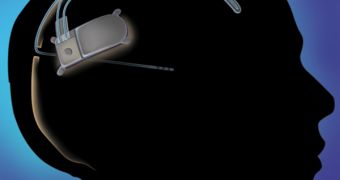Scientists from the Mountain View, California-based company NeuroPace announce the development of a new implantable device, which can be used to prevent seizures in epilepsy patients. The implant has to be placed under patients' scalps in order for it to work properly.
Epilepsy seizures are very damaging to the human brain, and they can significantly decrease quality of life for patients suffering from this condition. Doctors and scientists alike have been looking for ways to address epilepsy for decades, but existing methods of treatment are not particularly effective.
This is where the new device comes in. The RNS Simulator resembles a miniaturized computer that is inserted under the scalp. From its vantage point, it relies on wire sensors spread out all over the brain to analyze electrical activity and figure out when a seizure is about to occur.
When such a buildup is detected, the instrument releases a series of low-intensity electric zaps, which nip the problem in the bud, releasing the electrical potential safely. This instrument is the first in a series of anti-seizure implants that does not focus on the vagal nerve.
Instruments called vagal nerve stimulation (VNS) implants are already used to treat several forms of epilepsy, dystonia, and Parkinson's dementia, but their main drawback is that they tend to be reactive, rather than proactive. The RNS Stimulator circumvents this problem entirely.
The US Food and Drug Administration (FDA) has already approved the new device for use in human patients. According to NeuroPace, the only side-effects associated with using the tool are infections occurring at the implant site, and short life for the batteries that power it up.
“I think this is substantial. This is the first FDA-approved brain implant for epilepsy. And it's also the first implant of any kind that is responsive to brain activity,” comments Vanderbilt Medical Center neurologist Dr Joseph Neimat, who was not a part of the RNS Stimulator research effort.
The expert says that the implant could prove especially useful for people who have drug-resistant epilepsy, or other severe forms of the disease. Surgery can be used to remove areas of the brain where seizures originate, but this is not an option when important areas of the cortex are causing the issues.
“What the new device does is that it's simultaneously recording from a particular part of the brain and it's sensing when changes occur,” Neimat concludes, quoted by NPR.

 14 DAY TRIAL //
14 DAY TRIAL //